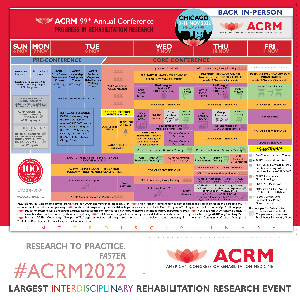Back
Brain Injury
Shared experience and concerns after concussion: A Mixed Methods Analysis of the Concussion Subreddit
Wednesday, November 9, 2022
9:45 AM – 9:50 AM
Location: Station 7

Yalian Pei
Doctoral Student
University of Georgia
ATHENS, Georgia, United States
Katy H. O'Brien, PhD CCC-SLP
Assistant Professor
University of Georgia
Athens, Georgia, United States
Presenting Author(s)
Non-presenting Author(s)
Research Objectives: 1. Contrast concerns among concussion subgroups;
2. Describe important features of posts with strong emotional valence;
3. Discuss clinical implications of this study.
Design: Mixed method. Quantitative methods employed Latent Dirichlet Allocation (Blei et al., 2003) to identify dominant topics across posts. Valence Aware Dictionary and sEntiment Reasoner (Hutto & Gilbert, 2014) identified primary sentiments in each post. Qualitative content analysis generated sub-themes for individuals in acute versus chronic stages and individuals with first versus multiple concussions.
Setting: Social media
Participants: Posts in the subreddit “r/Concussion” that did not include any text in the body, only shared technical information, or discussed moderate to severe traumatic brain injuries or other neurological disorders were excluded.
Interventions: NA
Main Outcome Measures: Dominant topics, primary sentiment, subordinate themes
Results: Over 50% of posts expressed strong negative sentiment and were related to symptom experience, emotional responses, and care-seeking experience. Meta-themes identified through topic modeling were understanding symptoms and managing recovery. In terms of understanding symptoms, content analysis further identified that individuals with acute injuries were uncertain about whether they sustained a concussion, while individuals at chronic stages were concerned about persistent symptoms or links between their symptoms and concussion. Posts from individuals with multiple concussions revealed a possible tendency toward overattributing physical discomfort to concussion, strong fear toward receiving another concussion, and concerns about cumulative effects. Regarding managing recovery, all subgroups were seeking information about symptom management and expectations during recovery. Individuals at the acute stage were uncertain about their needs for care-seeking, while individuals in chronic stages or with multiple concussions were concerned about return-to-productivity and available treatments.
Conclusions: Educational needs shift post-concussion, suggesting that people may benefit from counseling and educational materials tailored to their time post onset and previous history of concussion. People with concussion also express a desire for more consistent follow-up of medical care and education.
Author(s) Disclosures: This project was supported by the Scott Lilienfeld Injury Prevention Scholarship. The authors have no other financial or non-financial conflicts of interests to disclose.
2. Describe important features of posts with strong emotional valence;
3. Discuss clinical implications of this study.
Design: Mixed method. Quantitative methods employed Latent Dirichlet Allocation (Blei et al., 2003) to identify dominant topics across posts. Valence Aware Dictionary and sEntiment Reasoner (Hutto & Gilbert, 2014) identified primary sentiments in each post. Qualitative content analysis generated sub-themes for individuals in acute versus chronic stages and individuals with first versus multiple concussions.
Setting: Social media
Participants: Posts in the subreddit “r/Concussion” that did not include any text in the body, only shared technical information, or discussed moderate to severe traumatic brain injuries or other neurological disorders were excluded.
Interventions: NA
Main Outcome Measures: Dominant topics, primary sentiment, subordinate themes
Results: Over 50% of posts expressed strong negative sentiment and were related to symptom experience, emotional responses, and care-seeking experience. Meta-themes identified through topic modeling were understanding symptoms and managing recovery. In terms of understanding symptoms, content analysis further identified that individuals with acute injuries were uncertain about whether they sustained a concussion, while individuals at chronic stages were concerned about persistent symptoms or links between their symptoms and concussion. Posts from individuals with multiple concussions revealed a possible tendency toward overattributing physical discomfort to concussion, strong fear toward receiving another concussion, and concerns about cumulative effects. Regarding managing recovery, all subgroups were seeking information about symptom management and expectations during recovery. Individuals at the acute stage were uncertain about their needs for care-seeking, while individuals in chronic stages or with multiple concussions were concerned about return-to-productivity and available treatments.
Conclusions: Educational needs shift post-concussion, suggesting that people may benefit from counseling and educational materials tailored to their time post onset and previous history of concussion. People with concussion also express a desire for more consistent follow-up of medical care and education.
Author(s) Disclosures: This project was supported by the Scott Lilienfeld Injury Prevention Scholarship. The authors have no other financial or non-financial conflicts of interests to disclose.
Learning Objectives:
- Contrast concerns among concussion subgroups
- Describe important features of social media posts with strong emotional valence
- Discuss clinical implications from understanding concerns and needs among people with concussion posting on social media

.jpg)
